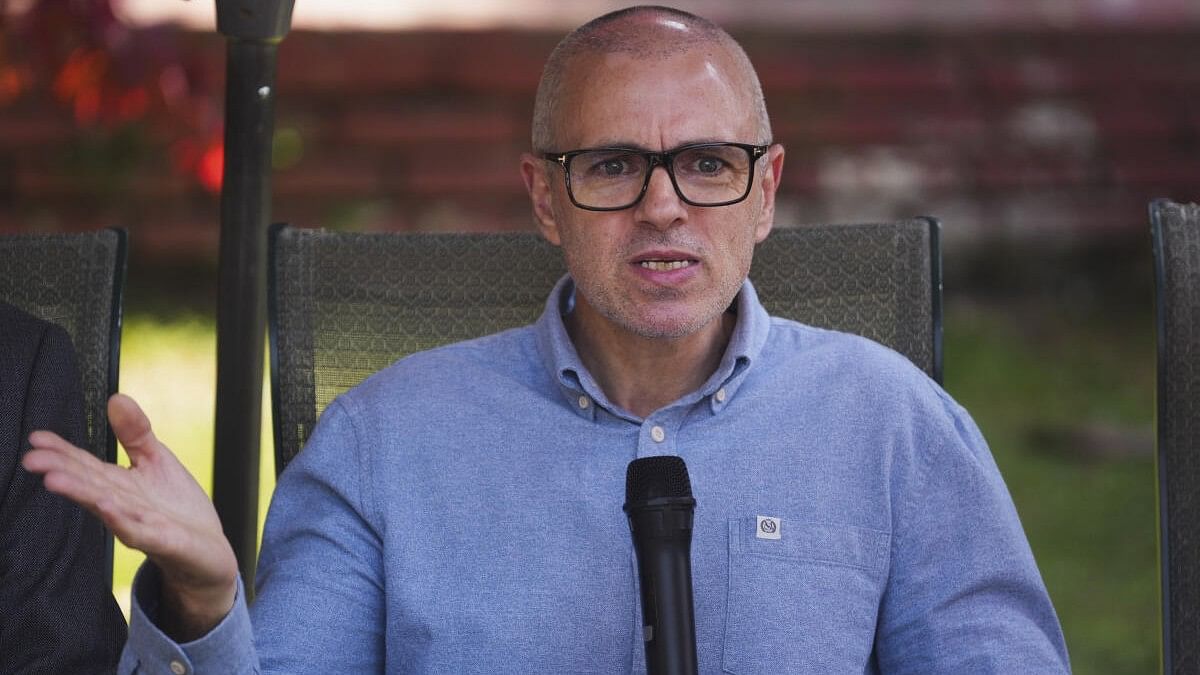
Jammu and Kashmir National Conference Vice President Omar Abdullah.
Credit: PTI Photo
Srinagar: The recent quashing of the money laundering case against National Conference (NC) president Farooq Abdullah by the Jammu and Kashmir High Court, just days before the announcement of assembly elections, has triggered widespread political speculation.
Adding fuel to the fire, Omar Abdullah’s latest comments have taken many by surprise. After repeatedly declaring that he would not pursue the Chief Minister’s position in the post-Article 370 era, his hint at now contesting the elections suggests a possible shift in strategy.
This move raises questions about whether it’s a calculated step towards a future alliance with the Bharatiya Janata Party (BJP). In the current political climate, the possibility of an NC-BJP alliance, reminiscent of the 2015 PDP-BJP coalition, cannot be dismissed.
The PDP-BJP partnership, though short-lived, was a significant political experiment aimed at bridging the regional divide between Jammu and Kashmir. Despite its collapse, it set a precedent for cross-regional cooperation in the state’s intricate political landscape.
For the NC, an alliance with the BJP could be a pathway to power, particularly if no party secures an outright majority, which is highly anticipated. However, such a partnership would be challenging, given the NC’s long-standing opposition to the BJP's positions on Article 370 and the restoration of greater autonomy for the erstwhile state. Yet, in politics, where pragmatism often prevails, new alliances may emerge in the post-Article 370 environment of Jammu and Kashmir.
From the BJP’s perspective, joining forces with the NC could help solidify its influence in the region and counter the perception of being ‘anti-Kashmiri.’ However, it would be difficult for the BJP leadership to justify such an alliance at the national level.
Policy analyst and senior journalist Zaffar Choudhary anticipates a hung assembly and suggests that a post-poll alliance between two or more parties is inevitable.
“With six or seven parties contesting the elections—NC, PDP, BJP, Congress, People’s Conference, Apni Party, and Engineer Rasheed—whether we see an NC-BJP alliance or a coalition between NC and Congress, remains uncertain. However, if the goal is to keep the BJP out of power, at least three parties will need to unite,” he told DH.
Regarding the potential for an NC-BJP alliance, Choudhary added, “It will be more challenging for the BJP than for the NC. Given that Prime Minister Narendra Modi and Home Minister Amit Shah have long criticized dynastic parties, it would be difficult for them to justify such an alliance at the national level.”
As the assembly elections draw closer, attention will focus on the strategic moves of key political players. The High Court’s ruling in favor of Farooq Abdullah and Omar Abdullah’s apparent change in stance could mark the beginning of a new, and perhaps unexpected, political alignment in Jammu and Kashmir.
Whether an NC-BJP alliance comes to fruition remains uncertain, but it will undoubtedly keep political analysts and the public on edge in the coming months.